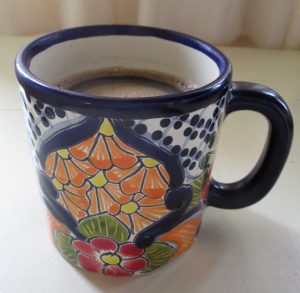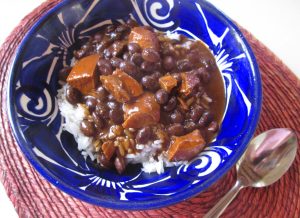Recently I came across an article in Britain’s daily newspaper The Guardian about a new book titled The Age Well Project: Easy Ways to a Longer, Healthier, Happier Life, by Annabel Streets and Susan Saunders, the result of the authors’ more than five years of research into the latest science on how to have a healthier, happier old age.
The Guardian’s article highlights twenty-five of the book’s nearly one hundred shortcuts to health in later life, and I wanted to share many of them with WOW readers, in case you happened to miss The Guardian piece. For the whole article, see “Happy Ever After: 25 Ways to Live Well into Old Age” at:
https://www.theguardian.com/lifeandstyle/2019/may/26/happy-ever-after-25-ways-to-liv…
Here are twenty of them, in my abridged and, in some cases, annotated form, for you to use too as a checklist:
~ Enjoy coffee
Why? Because coffee is rich in antioxidants, polyphenols and phenylindane, a recently identified compound that may help fend off Alzheimer’s and Parkinson’s disease, among other benefits.

~ Walk faster
Brisk walking has been linked to better memory, better health and a longer life. Increase your pace until you’re slightly out of breath or sweaty and aim for 30 minutes a day, ideally outdoors.
~ Exercise in green space
Trees produce phytoncides, which help to lower blood pressure, reduce stress, and boost immunity.

~ Fast every day
There are several forms of fasting, the authors say, but they prefer the one followed by our distant forebears, who typically ate supper at sundown, rarely snacked, and then ate mid-morning the following day.
~ Build muscle
Recent research found that older adults who did twice-weekly strength training lived longer and with less illness than those who did none.
~ Read books
A Yale study of 3,600 over-50s found that reading increased longevity by almost two years.
~ Work longer
A 2016 study found that people who worked longer lived longer. Researchers speculate that this is because working usually involves social interaction, movement, and a sense of purpose.
~ Keep learning
The brain at any age loves novelty. Crafts, games, even cooking from a new recipe, all trigger the creation of neurons. But the more complex and more difficult the new activity is, the greater the rewards.
~ Take a nap
A NASA study found that sleepy pilots had a 45 percent improvement in performance and a 100 percent improvement in alertness after a short (about 30 minute) nap.
~ Avoid pollution
Avoid congested roads, switch to an anti-inflammatory diet (shown to mitigate the effects of pollution in some people), invest in a good quality air purifier, and fill your house with pollution-fighting greenery.
~ Use olive oil
A four-and-a-half-year clinical trial involving 7,000 older adults at risk of heart disease found that those eating an olive oil-rich Mediterranean diet had 30 percent fewer instances of heart attacks and strokes, as well as improved lipid and cholesterol levels and lower blood pressure.
~ Eat more fiber
If you make just one dietary change to boost longevity, the authors say, make it this one. An Australian study tracked the diets of 1,600 people over ten years to discover the impact of carbohydrate consumption on successful ageing. The most successful agers (those most free of disease after a decade) were the ones with the highest fiber intake.

~ Change how you eat
Changing how you eat, rather than what you eat, can make a bigger impact on longevity than a radical dietary overhaul. Vegetables, whole grains, pulses and lean protein should fill up our plates now. Also aim to eat earlier, whenever possible, to allow digestion to kick in well before bedtime.
~ Build bone density
The adage, “use it or lose it,” is never truer than when applied to bone strength, say these authors. They recommend jumping, running, skipping, and lifting weights; but if that sounds too strenuous or sweaty, they say “ballroom dancing improves balance and coordination, resulting in fewer falls and fractures.”
~ Cultivate friendships
Loneliness is as big a mortality risk as diabetes, these authors state. Research links social isolation to dementia, heart disease, stroke, depression, and a 29 percent greater risk of dying.
~ Support immunity
Support your immune system with a diet high in dark leafy greens, brassicas (such as cabbage and broccoli), alliums (such as garlic, leeks and onions) and mushrooms.
~ Meditate
Research shows that meditation has a powerful effect on the brain. It appears to reduce stress and promote empathy, and regular practitioners seem not to lose gray matter or suffer reduced concentration as they age.
~ Look after your eyes
Regular eye tests are a must; eyesight changes rapidly after the age of 40. Wear good-quality sunglasses on sunny days, even in winter, and take regular breaks if you spend a lot of your day looking at an electronic screen.
~ Walk a dog
The health benefits of owning a dog are obvious: dogs need walking, caring for, and routine – all of which help us age better. A study of more than 3 million Swedes age 40 to 80 found that dog owners had a lower risk of death due to all causes.
~ Cultivate optimism
Negativity, unsurprisingly, puts stress on the body, elevating cortisol levels, which in the long term can impact heart health, sleep quality, weight and cognition. We really are as old as we feel.
All right, now that we know all this, if you’ll excuse me, I’m going to borrow a dog from a good friend, take the dog for a long, brisk walk in the park (wearing my sunglasses, of course), all the while thinking happy thoughts, then come home and read a book before taking a half-hour nap. Check, check, check, check, check, check, check!

Great tips
Thanks, Lyn! I love that I can always count on you for a comment!
Except for the dog, you’re in great shape!
Great reminders of the things that make us happy and health. And, of course, we expats in San Miguel must study Spanish for the rest of our lives. What better way to challenge the brain?
Ha! Funny about the lack of dog, Helaine! And, yes, the Spanish studies that will be forevermore…
Thanks. Many of those ideas are useful.
For a longer, healthier life consider, How Not to Die:
https://nutritionfacts.org/video/how-not-to-die-an-animated-summary/
—-
The Guardian in the article quoted in this post supports the claim that olive oil is healthy for people at high risk for heart issues by pointing to the *retracted* Predimed study here:
https://www.nejm.org/doi/full/10.1056/nejmoa1200303
Some commentary on that retraction:
https://blogs.plos.org/absolutely-maybe/2018/06/14/what-does-the-predimed-trial-retraction-re-boot-mean-for-the-mediterranean-diet/
The diet with the best demonstrated results for people at high risk for heart issues:
http://dresselstyn.com/JFP_06307_Article1.pdf
Thank you for all of this info, Glenn.
Dear Bon,
What great advice, and it’s all very doable. I so yearn to have a dog, but I’m out all day. It seems sad to leave it alone. Someday, maybe when I retire, which I don’t plan to do until I can’t drag myself to work anymore or they don’t want me anymore. At 70, I’ll take stock and see.
You must make mole sauce. Is it difficult? I really like it.
Much love,
Paul
I love mole, too, Paul dear! I make it the easiest way: by opening a container by Dona Maria marked “listo para servir” (ready to serve). I’m sure this brand is available everywhere in the States. Making mole from scratch requires about 26 ingredients, I’m told, and all-day labor. Not for me! … I know you’ll love retirement when you get there. Just think of all the great books you’ll have time to read! — xx
Thank you for that, Bonnie! I’m getting a lot of that but can always do better. They didn’t mention a glass of wine every day? And what are pulses in this sentence, “Vegetables, whole grains, pulses and lean protein should fill up our plates now”? Thank you for sharing that with all of us!
No, they didn’t mention wine in The Guardian article, but maybe it’s in the book. And I just looked up the full definition of pulses: “the edible seeds of various leguminous plants, for example chickpeas, lentils, and beans.” I’d been thinking only in terms of lentils. One of the good things about being retired is that there’s more time for following all this advice! 🙂
Oh, and your chicken mole looks fantastic!
It was quite delish, Barb!
Great tips! Makes me want to step out and find a good exercise class!
Hugs
Kate
Or do laps in Parque Juarez, which is near you too! — xx
Thanks for the check check check! I’m also doing that as i read along…is it aging teacher in me wanting to get it right!! Ha! Glad to have you as a virtual friend!
And I’m glad to have YOU as a virtual friend, too, Shari! Yes, I’ve always found checklists especially helpful. But then I’m a list-maker from way back…